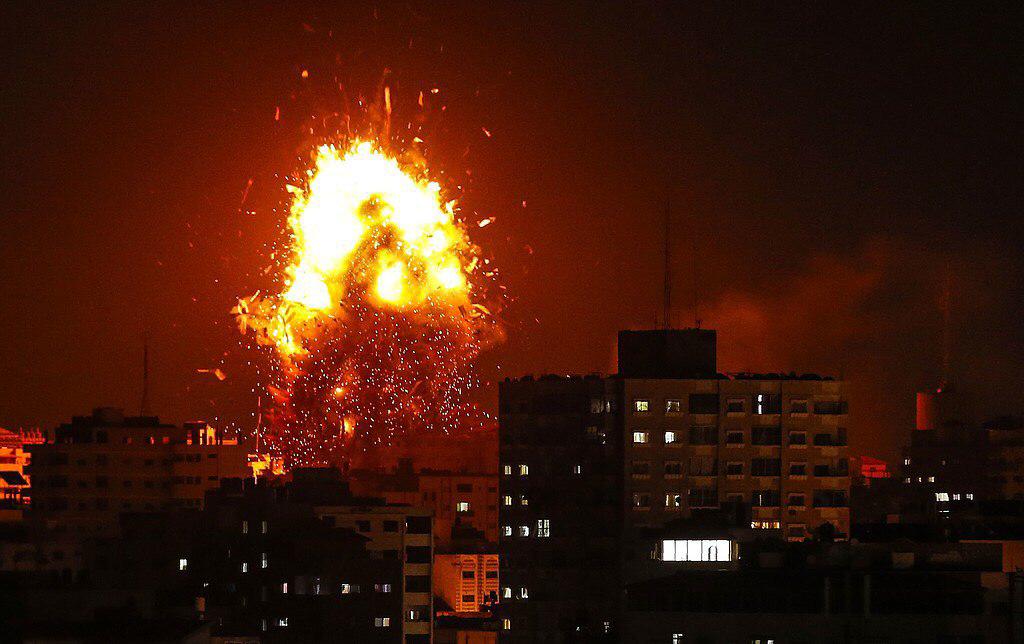The ICRC warned on Thursday that hospitals in Gaza “risk turning into morgues”.
Qatar and the United Nations have discussed the provision of urgent humanitarian aid in the Gaza Strip on Wednesday amid international efforts to secure a safe passage in light of a complete Israeli siege.
Discussions over the pressing matter took place in a phone call between Qatar’s Minister of State for International Cooperation at the Ministry of Foreign Affairs Lolwah Al Khater and the Commissioner-General of the UN Relief and Works Agency for Palestine Refugees in the Near East (UNRWA) Philippe Lazzarini.
“During the conversation, they discussed cooperation relations between the State of Qatar and the UNRWA and the urgent humanitarian needs of the Gaza Strip amid the latest developments in the occupied Palestinian territories,” the Gulf state’s foreign ministry said in a statement.
A separate phone call took place on Thursday between Al Khater and the President of the International Committee of the Red Cross (ICRC) Mirjana Spoljaric, which also dealt with securing safe humanitarian corridors in Gaza.
Meanwhile, Egyptian sources told Al Araby Al Jadeed on Wednesday that Cairo has been holding extensive talks with the United States, Israel’s main ally, over the concerning humanitarian conditions in Gaza, including an aid mechanism.
The source added that there have also been engagements with Qatar and Turkiye over “financing aid packages” through the Gaza-Egypt Rafah crossing, if an agreement is reached with the Israeli side.
However, Qatar has yet to comment on the reported talks.
Qatar, which hosts a Hamas political office, has been at the forefront of de-escalation efforts in Gaza since the onset of the latest events. Earlier this week, the Gulf state confirmed communications “with the relevant parties, as part of regional and international efforts to de-escalate the situation”.
‘Hospitals risk turning into morgues’
Israel waged a deadly war on Gaza on Saturday, with reporters and witnesses on the ground reporting the use of the internationally restricted white phosphorus by the occupation forces (IOF).
As of Thursday morning, Israel has killed more than 1,200 people in Gaza while wounding at least 5,600 others, though the figure is expected to rise amid the ongoing bombardment.
On Monday, Israel’s Defence Minister Yoav Gallant ordered a complete siege on Gaza while describing Palestinians in the Strip as “human animals”.
“I have ordered a complete siege on the Gaza Strip. There will be no electricity, no food, no fuel, everything is closed. We are fighting human animals and we act accordingly,” Gallant said during the announcement.
In a statement on Tuesday, UN Secretary-General Antonio Guterres urged “all sides and the relevant parties” to provide a safe passage for the UN to deliver the urgent humanitarian aid to Palestinians in Gaza, while appealing to the international community to “mobilise immediate humanitarian support for this effort.”
The absence of electricity poses further challenges on medics in Gaza that have been working relentlessly over the last six days to treat thousands of injuries with an already limited supply of medicine and tools.
Gaza has already faced an illegal Israeli air, land and sea blockade since 2007, which has been widely described as the world’s “largest open-air prison”.
The besieged enclave heavily relies on vital crossings that allow the passage of basic necessities, including fuel and food supplies. On Tuesday, Israel attacked and shut down the shared Egypt and Gaza crossing of Rafah, which has long served as a crucial lifeline for millions of Palestinians in the city.
The ICRC warned on Thursday that hospitals in Gaza “risk turning into morgues” amid the complete blackout, while calling on Israel and Hamas “to reduce the suffering of civilians”.
“As Gaza loses power, hospitals lose power, putting newborns in incubators and elderly patients on oxygen at risk. Kidney dialysis stops, and X-rays can’t be taken. Without electricity, hospitals risk turning into morgues,” Fabrizio Carboni, the ICRC’s regional director for the Near and Middle East, said in a statement.
